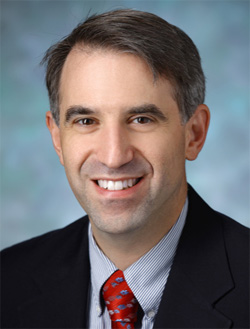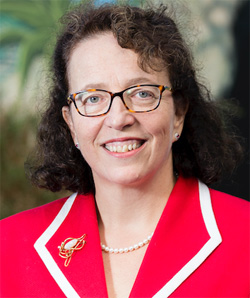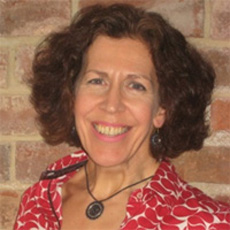SCIENTIFIC COMMITTEE
Scientific Advisory Board Committee Members
Scientific Advisory Board Committee Members
 Professor Helen Cross is The Prince of Wales’s Chair of Childhood Epilepsy and Head of the Developmental Neuroscience Programme at UCL-Great Ormond Street Institute of Child Health, Honorary Consultant in Paediatric Neurology Great Ormond Street Hospital for Children NHS Foundation Trust, London and Young Epilepsy, Lingfield, UK. Her research has been targeted at improving outcomes in early onset epilepsy, specifically in assessing the role of surgery and ketogenic diet. She has also held key leadership roles both nationally and internationally. She is Treasurer of the International League Against Epilepsy 2017-2021 (Secretary General 2013-2017), Clinical Advisor to the National Children’s Epilepsy Surgery Service, and Clinical Advisor to the update of the NICE guidelines for Childhood Epilepsy 2018-2021. She developed, as Coordinator, the European Reference Network for Rare and Complex Epilepsies (EpiCARE) launched in 2017.
Professor Helen Cross is The Prince of Wales’s Chair of Childhood Epilepsy and Head of the Developmental Neuroscience Programme at UCL-Great Ormond Street Institute of Child Health, Honorary Consultant in Paediatric Neurology Great Ormond Street Hospital for Children NHS Foundation Trust, London and Young Epilepsy, Lingfield, UK. Her research has been targeted at improving outcomes in early onset epilepsy, specifically in assessing the role of surgery and ketogenic diet. She has also held key leadership roles both nationally and internationally. She is Treasurer of the International League Against Epilepsy 2017-2021 (Secretary General 2013-2017), Clinical Advisor to the National Children’s Epilepsy Surgery Service, and Clinical Advisor to the update of the NICE guidelines for Childhood Epilepsy 2018-2021. She developed, as Coordinator, the European Reference Network for Rare and Complex Epilepsies (EpiCARE) launched in 2017.
Awaiting bio
 Stéphane Auvin is epileptologist and Child Neurologist. Full professor at Robert Debré University Hospital & Université de Paris, Paris, France.
Stéphane Auvin is epileptologist and Child Neurologist. Full professor at Robert Debré University Hospital & Université de Paris, Paris, France.
He is conducting the Epilepsy program and the center for rare epilepsies at Robert Debré University Hospital, APHP, Paris. He is also conducting experimental research works in the INSERM U1141, Paris.
His clinical and research activities are focused on pediatric epilepsy and its treatments and his research team is working on inflammation-epilepsy, on the ketogenic diet and antiepileptic drugs in the developing brain. The Epilepsy program at Robert Debré Children Hospital, Paris, is involved in antiepileptic drugs development and clinical trials (PK, Phase II, Phase III and Phase IV). He is the author of more than 150 peer-reviewed papers or book chapters.
He also serves on the ILAE (International League Against Epilepsy) as the chair of the Pediatric commission (2017-2021) and as Associate Editor for Epilepsia (Journal of ILAE, IF: 5.295) (2017-2021). He is a member of the board of the ILAE French Chapter and the president (2019-2022) of the French Pediatric Neurology Society.
Stéphane AUVIN, MD, PhD, FAES
Professor, Université de Paris,
Pediatric Epilepsy & Child Neurology,
Reference Center for Rare Epilepsies
Child Neurology Department & INSERM NeuroDiderot, DHU Protect
Robert-Debré University Hospital, Paris, France
 Prof. Heung Dong Kim is currently Chief of Pediatric Epilepsy Clinic at Severance Children’s Hospital, Yonsei Universlty College of Medicine, Seoul, Korea.
Prof. Heung Dong Kim is currently Chief of Pediatric Epilepsy Clinic at Severance Children’s Hospital, Yonsei Universlty College of Medicine, Seoul, Korea.
He pioneered introducing advanced pediatric epilepsy program, actively applied dietary treatment and surgery to intractable pediatric epilepsy patients. He contributed to widen the usability of dietary treatment in epileptic children from mitochondrial defects and in surgically remediable focal epilepsy, and also introduced surgical treatment extended to patients with secondary generalized epileptic encephalopathy such as Lennox-Gastaut syndrome and non-lesional epilepsy children.
Professor Kim earned medical degree at Yonsei University, College of Medicine, Seoul, and completed residency and pediatric neurology fellowship in Severance Hospital, Yonsei University. He also received his PhD fromYonsei University, Graduate School. He spent 2 years overseas training for an epilepsy fellowship program at the Children’s Hospital of Philadelphia as the William G. Lennox lnternational Epilepsy Fellow supported by the Epilepsy Foundation of America from 1994 to 1996.
He served as the President of Korean Epilepsy Society from 2011 to 2013, and currently serves for the President of Korean Bureau for Epilepsy, Chair, Dietary Task Force, Medical Therapies Commission, ILAE
He has published 18 international and Korean textbooks, book chapters for pediatric epilepsy, 147 original articles, review articles, cases reports in peer-reviewed international journals including Nature Medicine. Neurology, Pediatrics, Epilepsia, Seizure, Epilepsy and Behavior, and Brain and Development and more than 150 original articles, review articles, and cases reports in Korean scientific journals.
 Professor Klepper is recognised as one of the world’s leading authorities in the area of Glut 1 Deficiency and speaks at many international conferences.
Professor Klepper is recognised as one of the world’s leading authorities in the area of Glut 1 Deficiency and speaks at many international conferences.
His main field of work are disorders of brain energy metabolism such as GLUT1 deficiency syndrome or pyruvate dehydrogenase deficiency. Both disorders are associated with intractable epilepsy and respond to the ketogenic diet. Research interests are mechanisms and adverse effects of the diet, as well as establishing international protocols for the use of the diet in epilepsy and metabolic disorders. Since 01/07: Medical Director of Aschaffenburg Children’s Hospital.
Professor Klepper is on the MF Glut 1 Medical Advisory board and works with Dr. Archana Desurkar in the MF Glut 1 clinic.
Prof. Dr. Jörg Klepper
Chefarzt Kinderklinik, Klinikum Aschaffenburg, Germany.
 Dr. Kossoff is a Professor of Neurology and Pediatrics at Johns Hopkins University in Baltimore, Maryland USA. He received his medical degree from SUNY at Buffalo School of Medicine in New York, followed by a residency in pediatrics at Eastern Virginia Medical School in Norfolk, Virginia. He completed a fellowship in child neurology and then pediatric epilepsy at The Johns Hopkins Hospital in Baltimore. He has been at Johns Hopkins for over 20 years, since 1998.
Dr. Kossoff is a Professor of Neurology and Pediatrics at Johns Hopkins University in Baltimore, Maryland USA. He received his medical degree from SUNY at Buffalo School of Medicine in New York, followed by a residency in pediatrics at Eastern Virginia Medical School in Norfolk, Virginia. He completed a fellowship in child neurology and then pediatric epilepsy at The Johns Hopkins Hospital in Baltimore. He has been at Johns Hopkins for over 20 years, since 1998.
His research and clinical practice focuses on the diagnosis and treatment of childhood seizures and epilepsy, particularly treatments other than medications such as diet, neurostimulation and surgery. Currently the Medical Director of the Pediatric Ketogenic Diet Center at Johns Hopkins, Dr. Kossoff is one of the world experts on ketogenic dietary therapy for neurologic disorders and developed the Modified Atkins Diet for children and adults in 2003. He is dedicated to bringing the use of diet therapies for neurologic disorders to the entire world and was recently the leader of a Task Force within the International League Against Epilepsy to help achieve this goal. He is a coauthor of The Ketogenic and Modified Atkins Diets: Treatments for Epilepsy and Other Disorders, now in its 6th edition, and helped organize both the 2008 and 2018 expert consensus guidelines on ketogenic diet management. Dr. Kossoff is also very involved in teaching and mentorship, and is the Director of the Child Neurology Residency Program at Johns Hopkins.
 Dr. Masinos’ research focuses on promoting and restoring brain health, with a particular interest in adenosine, and on the relationship among metabolism, brain activity and behavior. Recent mechanistic insights into the ketogenic diet- including the role of adenosine – hold translational implications for brain health and diverse disorders. She is also involved in public policies, environmental issues and brain health – with a special local focus on New England’s amazing forests.
Dr. Masinos’ research focuses on promoting and restoring brain health, with a particular interest in adenosine, and on the relationship among metabolism, brain activity and behavior. Recent mechanistic insights into the ketogenic diet- including the role of adenosine – hold translational implications for brain health and diverse disorders. She is also involved in public policies, environmental issues and brain health – with a special local focus on New England’s amazing forests.
Awaiting bio
 Dr. Rho is a Professor of Neurosciences and Pediatrics at the University of California, San Diego, and Division Chief of Pediatric Neurology at the Rady Children’s Hospital San Diego. He received an undergraduate degree in molecular biophysics and biochemistry at Yale University, and an M.D. from the University of Cincinnati. Dr. Rho has held prior faculty appointments at the University of Washington (Seattle), the University of California at Irvine, the Barrow Neurological Institute (Phoenix), and most recently, the University of Calgary. Dr. Rho’s main research interests are the mechanisms underlying the anti-seizure and neuroprotective effects of metabolism-based treatments such as the ketogenic diet. His research activities have been sponsored by research grants from the U.S. National Institutes of Health, Canadian Institutes of Health Research, Brain Canada, and a variety of intramural and extramural public and private sector sources.
Dr. Rho is a Professor of Neurosciences and Pediatrics at the University of California, San Diego, and Division Chief of Pediatric Neurology at the Rady Children’s Hospital San Diego. He received an undergraduate degree in molecular biophysics and biochemistry at Yale University, and an M.D. from the University of Cincinnati. Dr. Rho has held prior faculty appointments at the University of Washington (Seattle), the University of California at Irvine, the Barrow Neurological Institute (Phoenix), and most recently, the University of Calgary. Dr. Rho’s main research interests are the mechanisms underlying the anti-seizure and neuroprotective effects of metabolism-based treatments such as the ketogenic diet. His research activities have been sponsored by research grants from the U.S. National Institutes of Health, Canadian Institutes of Health Research, Brain Canada, and a variety of intramural and extramural public and private sector sources.
Jong M. Rho, MD
Awaiting bio
 Laureate Professor Ingrid Scheffer AO is a physician-scientist whose work as a paediatric neurologist and epileptologist at the University of Melbourne and Austin Health has led the field of epilepsy genetics over more than 20 years, in collaboration with Professor Samuel Berkovic and molecular geneticists. This resulted in identification of the first epilepsy gene and many more genes subsequently. Professor Scheffer has described many novel epilepsy syndromes and refined genotype–phenotype correlation of many disorders. Her major interests are in the genetics of the epilepsies, epilepsy syndromology and classification, and translational research. She collaborates on research focused on the genetics of speech and language disorders, autism spectrum disorders, cortical malformations and intellectual disability. She led the first major reclassification of the epilepsies in three decades, published in March 2017, for the International League Against Epilepsy. She has received many awards, including the 2007 American Epilepsy Society Clinical Research Recognition Award, the L’Oréal-UNESCO Women in Science Laureate for the Asia-Pacific region for 2012 and the ILAE Ambassador for Epilepsy Award. In 2014, she was elected as a Fellow of the Australian Academy of Science, and also as Vice-President and Foundation Fellow of the Australian Academy of Health and Medical Sciences. In 2019, she is President-Elect of the Australian Academy of Health and Medical Sciences. She was a co-recipient of the 2014 Australian Prime Minister’s Prize for Science and she was awarded the Order of Australia in 2014. In 2018, she was elected as a Fellow of the Royal Society.
Laureate Professor Ingrid Scheffer AO is a physician-scientist whose work as a paediatric neurologist and epileptologist at the University of Melbourne and Austin Health has led the field of epilepsy genetics over more than 20 years, in collaboration with Professor Samuel Berkovic and molecular geneticists. This resulted in identification of the first epilepsy gene and many more genes subsequently. Professor Scheffer has described many novel epilepsy syndromes and refined genotype–phenotype correlation of many disorders. Her major interests are in the genetics of the epilepsies, epilepsy syndromology and classification, and translational research. She collaborates on research focused on the genetics of speech and language disorders, autism spectrum disorders, cortical malformations and intellectual disability. She led the first major reclassification of the epilepsies in three decades, published in March 2017, for the International League Against Epilepsy. She has received many awards, including the 2007 American Epilepsy Society Clinical Research Recognition Award, the L’Oréal-UNESCO Women in Science Laureate for the Asia-Pacific region for 2012 and the ILAE Ambassador for Epilepsy Award. In 2014, she was elected as a Fellow of the Australian Academy of Science, and also as Vice-President and Foundation Fellow of the Australian Academy of Health and Medical Sciences. In 2019, she is President-Elect of the Australian Academy of Health and Medical Sciences. She was a co-recipient of the 2014 Australian Prime Minister’s Prize for Science and she was awarded the Order of Australia in 2014. In 2018, she was elected as a Fellow of the Royal Society.
 Elizabeth A. Thiele is Director of the Pediatric Epilepsy Program, Director of the Herscot Center for Tuberous Sclerosis Complex and Director of the Dravet Syndrome comprehensive clinical program at Massachusetts General Hospital. Dr. Thiele is also Professor of Neurology at Harvard Medical School.
Elizabeth A. Thiele is Director of the Pediatric Epilepsy Program, Director of the Herscot Center for Tuberous Sclerosis Complex and Director of the Dravet Syndrome comprehensive clinical program at Massachusetts General Hospital. Dr. Thiele is also Professor of Neurology at Harvard Medical School.
Dr. Thiele directs clinical research efforts in the neurologic aspects of Tuberous Sclerosis Complex (TSC) including epilepsy, autism and mental health issues. She has been principal investigator of several clinical trials in TSC, Dravet Syndrome and Lennox Gastaut Synrome. She also works on improved dietary therapies for epilepsy, including Low Glycemic Index Treatment. Dr. Thiele has received awards for teaching in residency programs at Massachusetts General Hospital and the Longwood Neurology Program, and for research mentoring from the Harvard MIT Health Sciences and Technology program. She also received the Manuel R. Gomez Award from the Tuberous Sclerosis Alliance in 2008, the inaugural John M Freeman Award in 2014 and the Infantile Spasms Award from the Child Neurology Foundation in 2014.
Dr. Thiele received her A.B., scl from Washington University, St. Louis in 1983 and her M.D. and Ph.D. from The Johns Hopkins University School of Medicine in 1990. She completed a residency in pediatrics at The Johns Hopkins Hospital in Baltimore and a residency in child neurology with the Longwood Program and Children’s Hospital in Boston. In addition, she completed a neuroscience fellowship at Children’s Hospital in Boston. Dr. Thiele is board certified in neurology with a special qualification in child neurology, epilepsy and in clinical neurophysiology.
 Susan Wood has worked as a UK registered dietitian for 32 years, predominantly in the NHS, treating a wide range of paediatric and adult conditions. In 2008, the referral of one young adult for the dietary management of drug resistant epilepsy sparked her interest in ketogenic therapy and since then, she has been pursuing the development of adult treatment protocols in the UK and raising the awareness of dietitians and neurologists to the life changing potential that ketogenic therapy can offer adults. In 2009 she started to work alongside the Matthews Friends Charity, offering support to adults and their neurology teams seeking treatment and in 2011 she joined the newly formed clinical team at the Matthews Friends Centre for Ketogenic Dietary Therapies. She continues to lead on the treatment of adults with difficult epilepsy and also supports adults with brain tumours keen to trial this novel approach to manage symptoms.
Susan Wood has worked as a UK registered dietitian for 32 years, predominantly in the NHS, treating a wide range of paediatric and adult conditions. In 2008, the referral of one young adult for the dietary management of drug resistant epilepsy sparked her interest in ketogenic therapy and since then, she has been pursuing the development of adult treatment protocols in the UK and raising the awareness of dietitians and neurologists to the life changing potential that ketogenic therapy can offer adults. In 2009 she started to work alongside the Matthews Friends Charity, offering support to adults and their neurology teams seeking treatment and in 2011 she joined the newly formed clinical team at the Matthews Friends Centre for Ketogenic Dietary Therapies. She continues to lead on the treatment of adults with difficult epilepsy and also supports adults with brain tumours keen to trial this novel approach to manage symptoms.
Awaiting bio